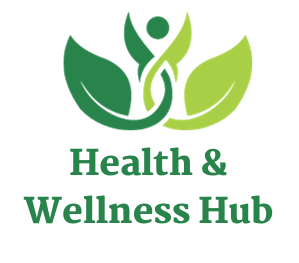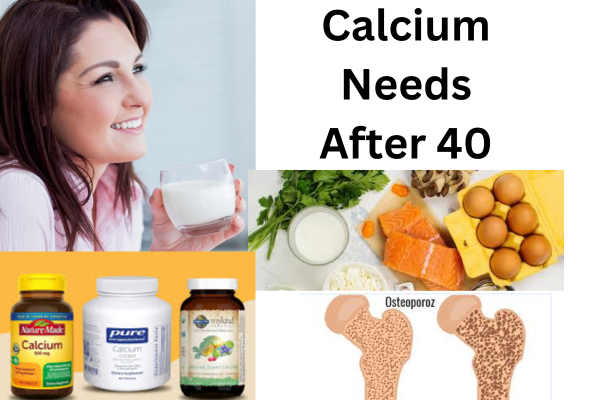As women age, especially after age 40, their bodies undergo significant hormonal changes that can affect various aspects of health, including bone health. One of the most important minerals for maintaining strong, healthy bones is calcium. As hormone fluctuations intensify, especially with perimenopause and the onset of menopause, the body’s calcium needs increase to support bone density and prevent bone-related problems such as osteoporosis.
In this blog, we’ll explore how hormonal changes affect bone health, why calcium becomes more important after 40, and how women can make sure they keep their bones strong and healthy. Getting enough to sustain.
Table of Contents
ToggleHow Hormonal Changes Affect Bone Health:
Hormones, especially estrogen, play an important role in regulating bone metabolism. Estrogen helps maintain the balance between bone breakdown and bone formation. Throughout a woman’s life, the body constantly rebuilds bone tissue, replacing old bone with new bone. However, after 40, hormonal changes begin to disrupt this balance, leading to a higher rate of bone loss than bone formation.
Estrogen and bone health:
Estrogen is an important hormone that supports the activity of osteoblasts, the cells responsible for building new bone. At the same time, estrogen slows down osteoclasts, the cells that break down old bone. When estrogen levels are stable, this balance ensures strong, healthy bones. However, as women approach perimenopause (usually beginning in their 40s), estrogen levels begin to decline, which accelerates bone loss.
This rapid bone loss can lead to osteopenia (decreased bone density) and, over time, osteoporosis—a condition where bones begin to break down and become more prone to fractures. Studies show that women can lose up to 20% of their bone density in the 5-7 years after menopause, mainly due to the lack of estrogen.
Other hormonal factors
In addition to estrogen, other hormones also affect bone health. Parathyroid hormone (PTH) plays a role in calcium regulation. When blood calcium levels are low, PTH increases, which stimulates the release of calcium from the bones to maintain adequate blood levels. After 40, fluctuations in PTH can increase bone loss if calcium intake is inadequate.
Additionally, changes in vitamin D metabolism can affect how well the body absorbs calcium from food, further increasing the risk of weakened bones.
Why Women Over 40 Need More Calcium
Calcium is the basis of strong bones. Because bone tissue is constantly breaking down and rebuilding, calcium is needed to ensure that new bone formation remains strong. However, as women age, calcium absorption naturally decreases, meaning women need more calcium to compensate for this reduced performance.
After age 40, women need to be more mindful of their calcium intake to offset the effects of declining estrogen levels. The recommended daily intake of calcium for women between 40 and 50 is about 1,000 milligrams (mg) per day. Once women reach menopause (around age 50), this recommendation increases to 1,200 milligrams per day, as the risk of bone fractures and fractures increases even more.
Best Sources of Calcium for Women Over 40
Ensuring adequate calcium intake from dietary sources is the most effective way to support bone health. Here are some of the best sources of calcium:
Dairy Products: Milk, yogurt, and cheese are some of the most concentrated sources of calcium. A single cup of milk can provide up to 300 mg of calcium.
Leafy Green Vegetables: Vegetables like kale, collard greens, and broccoli are excellent non-dairy sources of calcium. While spinach also contains calcium, it has oxalates that can inhibit calcium absorption, so it may not be as effective.
Fortified Foods: Many plant-based milk alternatives (such as almond, soy, and oat milk) are fortified with calcium. Additionally, certain cereals, orange juice, and bread are enriched with calcium, making it easier to meet daily needs.
Fish: Canned sardines and salmon with bones are not only rich in calcium but also contain omega-3 fatty acids that support overall health.
Nuts and Seeds: Almonds, chia seeds, and sesame seeds are high in calcium and provide additional nutrients like magnesium, which also supports bone health.
Factors That Impact Calcium Absorption
Even if you are consuming the recommended amount of calcium, several factors can influence how well your body absorbs it. Women over 40 need to be mindful of the following factors that can hinder calcium absorption:
Vitamin D: Vitamin D is essential for calcium absorption in the intestines. Without adequate levels of vitamin D, your body will struggle to absorb the calcium you consume. Sunlight exposure, fatty fish, and vitamin D-fortified foods can help maintain healthy vitamin D levels.
Caffeine and Alcohol: Excessive intake of caffeine and alcohol can interfere with calcium absorption and accelerate bone loss. Limiting coffee and alcohol consumption can help improve calcium retention.
Sodium: A diet high in sodium can lead to increased calcium excretion through urine, reducing the amount of calcium available for bone building. Reducing salt intake can help preserve calcium in the body.
Age and Hormonal Changes: As mentioned earlier, declining estrogen levels significantly affect calcium absorption and bone density. It’s essential to adjust calcium intake based on these hormonal shifts.
Should You Consider Calcium Supplements?
While it’s best to get calcium from food, some women may struggle to meet their calcium needs through diet alone. In such cases, calcium supplements can be helpful. However, there are a few things to consider before starting a supplement regimen:
Types of Calcium Supplements: The two most common forms of calcium supplements are calcium carbonate and calcium citrate. Calcium carbonate is more cost-effective but should be taken with food to improve absorption. Calcium citrate is easier to absorb and can be taken without food, making it ideal for women with reduced stomach acid, which is common as we age.
Dosage: The body can only absorb about 500 mg of calcium at a time. If you’re using supplements, it’s best to split the dosage throughout the day. Also, avoid taking excessive amounts, as too much calcium (over 2,000 mg daily) can lead to kidney stones or cardiovascular issues.
Consult a Healthcare Provider: Before starting any supplements, it’s essential to consult with your doctor. They can help determine whether you need additional calcium and what dosage is appropriate based on your health profile.
Lifestyle Tips for Maintaining Healthy Bones After 40
Beyond calcium intake, adopting healthy lifestyle habits can further support bone health. Here are some tips for keeping your bones strong:
Engage in Weight-Bearing Exercise: Activities like walking, jogging, dancing, and resistance training help stimulate bone formation. These exercises strengthen not only bones but also the muscles around them, reducing the risk of fractures.
Get Enough Vitamin D: Whether through diet, sunlight, or supplements, maintaining adequate vitamin D levels is crucial for calcium absorption and bone health.
Limit Smoking and Alcohol: Smoking and excessive alcohol consumption can accelerate bone loss. Reducing or eliminating these habits can significantly improve bone health.
Monitor Bone Health: After 40, regular check-ups to monitor bone density can help identify early signs of bone loss. Your doctor may recommend a bone density test to assess your risk of osteoporosis.
Conclusion
For women over age 40, hormonal changes—especially declining estrogen levels—make calcium even more important for maintaining bone health. Making sure you get enough calcium from your diet, managing factors that affect calcium absorption, and adopting bone-strengthening lifestyle habits can help you maintain strong, healthy bones as you age. can help maintain By being proactive about your calcium intake and bone health, you can reduce your risk of osteoporosis and enjoy long-term health and mobility.
Don’t wait—start prioritizing your bone health today for a stronger tomorrow!

